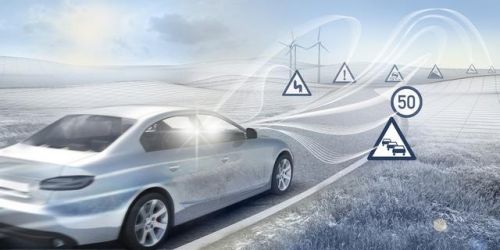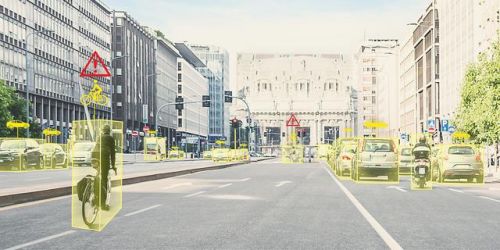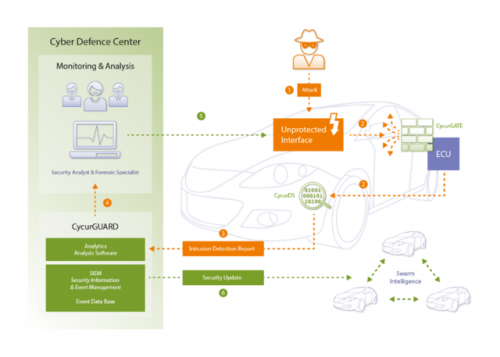How Bosch understands data security in connected driving
Core information: The benefits of connectivity are bound to outweigh potential risks. In order to realize future interconnection functions, the transmission of personal data is inevitable. The driver can decide which data to disclose and which to not disclose. Transparency and autonomous decision-making are two key elements of our data application policy. For the purpose of protecting data security, Bosch is focused on creating a multi-layered security concept that includes: dual architecture, secure E/E (electronic/electrical) architecture and gateways. Data transfer utilizes the latest encryption technologies, such as the encryption technology provided by our subsidiary escrypt. We will use data security protection measures when using data to win the trust of users and hope to gain competitiveness and gain competitive advantage.

How does Bosch ensure data security and privacy?
By carefully processing and applying user data generated in IoT solutions, we want to build trust among our customers and gain a competitive edge in the competition of other companies that process customer data in a more opaque manner. In short, our goal is to “enhance competitive advantage by building trustâ€. In the area of ​​connected services, we focus on achieving the highest levels of data security and providing protection against data misuse. For data transmission, we use the most advanced encryption technology.
In order to develop a successful IoT solution, we must gain the trust of our users. Therefore, Bosch places a strong emphasis on a high degree of responsibility and transparency in the use of customer data. We will inform the customer of what data we want to use for what purpose, and will explicitly ask for permission from the customer. The Internet of Things can only become a reality when people fully trust the information security of the Internet of Things. Our clear goal is that the benefits of interconnection must far outweigh its risks.

How to deal with data security issues? How does Bosch ensure that the data provided by the vehicle is not misused?
In order to achieve future interconnection functions, it is inevitable to collect a certain amount of personal data. The driver must be able to clearly decide which data to disclose and which to not disclose. Our principle is clear: just use the data that is really necessary. We firmly believe that the potential benefits of interconnection are far beyond the potential risks for drivers. For data transmission, we use the most advanced encryption technology, such as security software developed by our subsidiary escrypt. In addition, transparency and the client's discretion are the main points of our data usage policy. After all, leaving people's trust, the Internet of Things cannot succeed. Our goal is to ensure that the benefits of connectivity outweigh its risks.
How does Bosch ensure the safety of data in the car? Can future hackers invade vehicles?
We must maintain high safety standards for automotive electronics. With a dual architecture, we will strictly distinguish between driving-related functions (such as driver assistance systems) and functions that are not related to the driving itself (such as infotainment systems). In the future, the hardware security module will also protect the communication of each control unit. Since 2012, escrypt, which is a subsidiary of Bosch, is also developing software related to this.

What is Bosch's view on the new data protection regulations of the European Union?
After a long period of negotiations, the EU completed the drafting of new data protection regulations and directives in May 2016, which will take effect on May 25, 2018. Prior to that, Member States had time to pass national legislation to respond to the open terms of the Directive (in some cases EU member states can choose to implement, but in some cases EU member states must be implemented). Bosch has been paying close attention to the relevant trends of the German Ministry of the Interior. The parliamentary plenary decided to drastically reduce the earliest proposed national exemption regulations, which Bosch enjoyed. The legislation was finally passed by the parties on May 12, 2017. However, it still includes some exemptions for video surveillance in public places and personal data processing within the enterprise. This is just a few examples.

Vehicle manufacturers have their own cloud systems – why do they still use Bosch's automotive cloud suite?
What is the Bosch Automotive Cloud Suite? Bosch Automotive Cloud Suite is a new platform for intelligent transportation services. The Automotive Cloud Suite provides a software platform for all OEMs and transportation service providers, as well as a comprehensive toolkit that can help them develop more services designed for drivers and help them quickly capture the market.
Almost all OEMs now rely on IT service providers to support their solutions; in other words, automakers are also part of the service that is developed by internal free teams. The Bosch Automotive Cloud Suite is our service to suppliers as a supplier. Our difference from other vendors is that we combine in-depth automotive technology and IT expertise in the automotive cloud suite.
Magnetic Transducer External Drive Type
The magnetic transducers (External Drive Type) are versatile and customizable to different physical sizes, housings, mounting options, power consumptions. Our magnetic transducers are engineered to be used with an external drive circuit. This allows our customers the flexibility to design and customize the circuitry to meet their needs. External circuitry allows different frequency ranges to be used to create multiple sounds through excitation waveform. Our magnetic transducers come in a slim-line profile and are a cost-effective solution. Our extensive capabilities make our magnetic transducers an excellent solution for high/low tones, siren, and chime sounds.
Piezoelectric Buzzer,Passive Magnetic Buzzer,External Drive Buzzer,Magnetic Transducer External Drive Type
Jiangsu Huawha Electronices Co.,Ltd , https://www.hnbuzzer.com